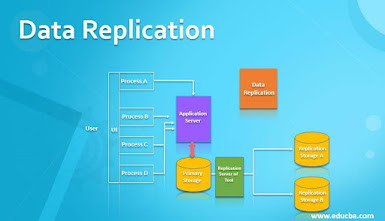Bridging the Gap: Oracle SQL Server Comparison - A Third-Party Perspective
Introduction:
In the realm of database management systems, two juggernauts stand tall: Oracle and SQL Server. Both are industry-leading platforms, each offering unique strengths and features. As an impartial observer, we delve into the world of Oracle SQL Server comparison to shed light on their functionalities, benefits, and how businesses can leverage these powerful databases to meet their data management needs.
Understanding Oracle and SQL Server:
Before delving into the comparison, let's briefly understand what Oracle and SQL Server bring to the table:
Oracle:
Oracle, developed by Oracle Corporation, is a versatile and highly robust database management system. It boasts exceptional scalability, making it an ideal choice for large enterprises and organizations with vast amounts of data. Oracle is known for its reliability, security, and support for complex data structures and operations.
SQL Server:
SQL Server, on the other hand, is a powerful database management system created by Microsoft. With a strong emphasis on ease of use and seamless integration with other Microsoft products, SQL Server has gained popularity among businesses of all sizes. It excels in providing a user-friendly interface, outstanding performance, and excellent support for business intelligence and reporting.
Functionalities and Features:
Oracle:
Advanced Data Security: Oracle offers robust security features, including encryption, access controls, and auditing capabilities to protect sensitive data from unauthorized access.
High Scalability: Oracle's ability to handle massive amounts of data and support large user loads makes it ideal for enterprise-level applications.
Rich Data Types: Oracle supports an extensive range of data types, enabling businesses to manage diverse data effectively.
Data Replication: Oracle provides powerful replication features, allowing businesses to create redundant copies of the database for data distribution and disaster recovery.
SQL Server:
Seamless Integration: SQL Server seamlessly integrates with other Microsoft products such as Azure services, Power BI, and Microsoft Office, facilitating streamlined workflows and collaboration.
User-Friendly Interface: SQL Server's intuitive interface makes it accessible to both IT professionals and non-technical users.
Business Intelligence and Reporting: SQL Server excels in business intelligence, offering features like Analysis Services, Reporting Services, and Integration Services to support data analysis and reporting.
Cloud Integration: SQL Server provides robust cloud integration options, allowing businesses to leverage the power of the cloud for storage, analytics, and scalability.
Benefits and Use Cases:
Oracle:
Oracle is best suited for enterprises and organizations with complex data management needs. It is an excellent choice for industries with stringent security and compliance requirements, such as finance, healthcare, and government sectors. Oracle's ability to handle large datasets and support critical business applications makes it ideal for mission-critical operations.
SQL Server:
SQL Server is a versatile database management system suitable for businesses of all sizes. It is particularly well-suited for small and medium-sized enterprises seeking a cost-effective, user-friendly, and high-performance solution. SQL Server's integration with other Microsoft products makes it an attractive choice for organizations already invested in the Microsoft ecosystem.
Considerations:
When choosing between Oracle and SQL Server, several factors should be considered:
1. Cost: Oracle's licensing costs are generally higher than SQL Server's, which may impact the budget for small businesses.
2. Data Size and Complexity: Oracle's superior scalability and support for complex data structures make it a preferable choice for large enterprises.
3. Integration Needs: Businesses already using Microsoft products may find SQL Server's seamless integration beneficial.
Conclusion:
In conclusion, the decision to choose between Oracle and SQL Server ultimately depends on the specific needs and requirements of the organization. Both databases offer unique strengths and functionalities that cater to different use cases. Oracle shines in scalability, data security, and performance for large enterprises, while SQL Server excels in ease of use, cloud integration, and cost-effectiveness for small to medium-sized businesses.
As a third-party observer, we acknowledge the value both Oracle and SQL Server bring to the table. Ultimately, the right choice lies in understanding the business needs, data management requirements, and long-term growth strategies of the organization. By making an informed decision between Oracle and SQL Server, businesses can leverage the power of these databases to drive efficiency, productivity, and growth in the competitive landscape of today's data-driven world.



Comments
Post a Comment